UPD Department of Philosophy at the XXV World Congress of Philosophy in Sapienza Universita di Roma (01-08 August 2024)
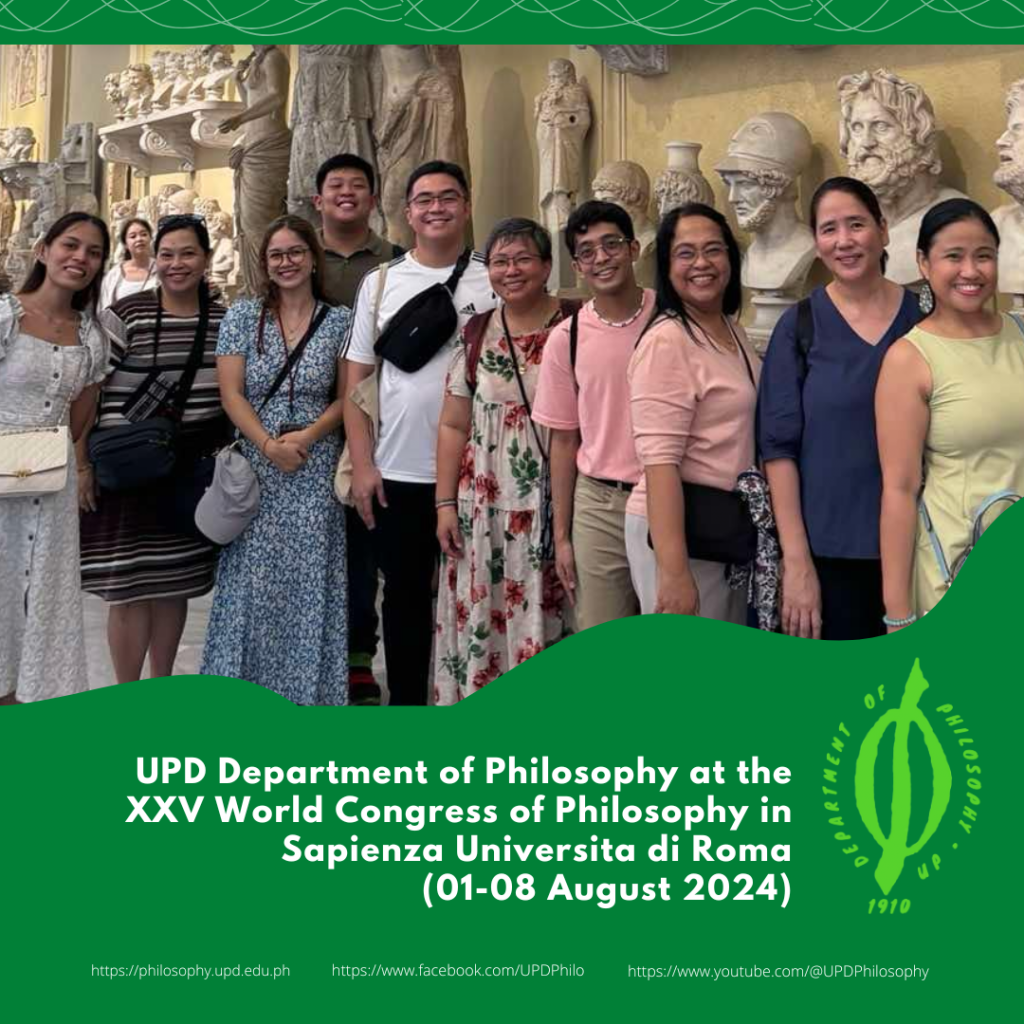


Beyond the Ghetto Webinar No. 23: Freedom’s Frailty: Self-Realization in the Neo-Daoist Philosophy of Guo Xiang’s Zhuangzi – A Conversation with the Author, Christine Abigail Tan
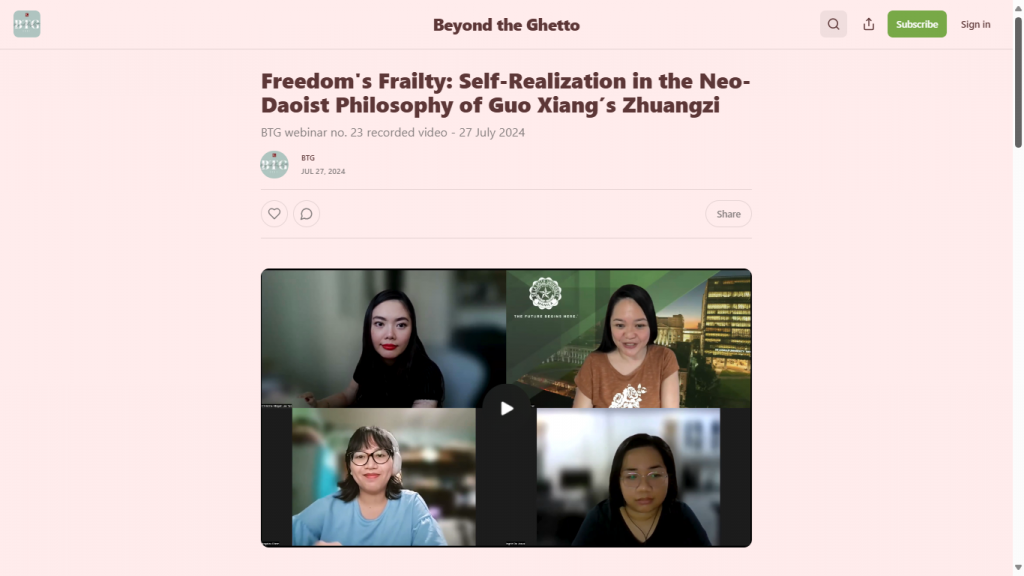
LOOK: Instr. Ingrid Mae H. De Jesus of the UP Diliman Department of Philosophy, as a reactor and commentator, in conversation with Christine Abigail Tan, PhD (NUS College and Yale-NUS College, Singapore) about Prof. Tan’s recently published book, “Freedom’s Frailty: Self-Realization in the Neo-Daoist Philosophy of Guo Xiang’s Zhuangzi” for Beyond the Ghetto webinar no. 23 held last 27 June 2024 5:00-7:00 PM, Manila time.
Watch the replay here: https://tinyurl.com/BTGwebinar23
#UPDPhilosophy💚📚

UPD Department of Philosophy’s Faculty Strategic Planning on 18-20 July 2024 in DAPCC Tagaytay
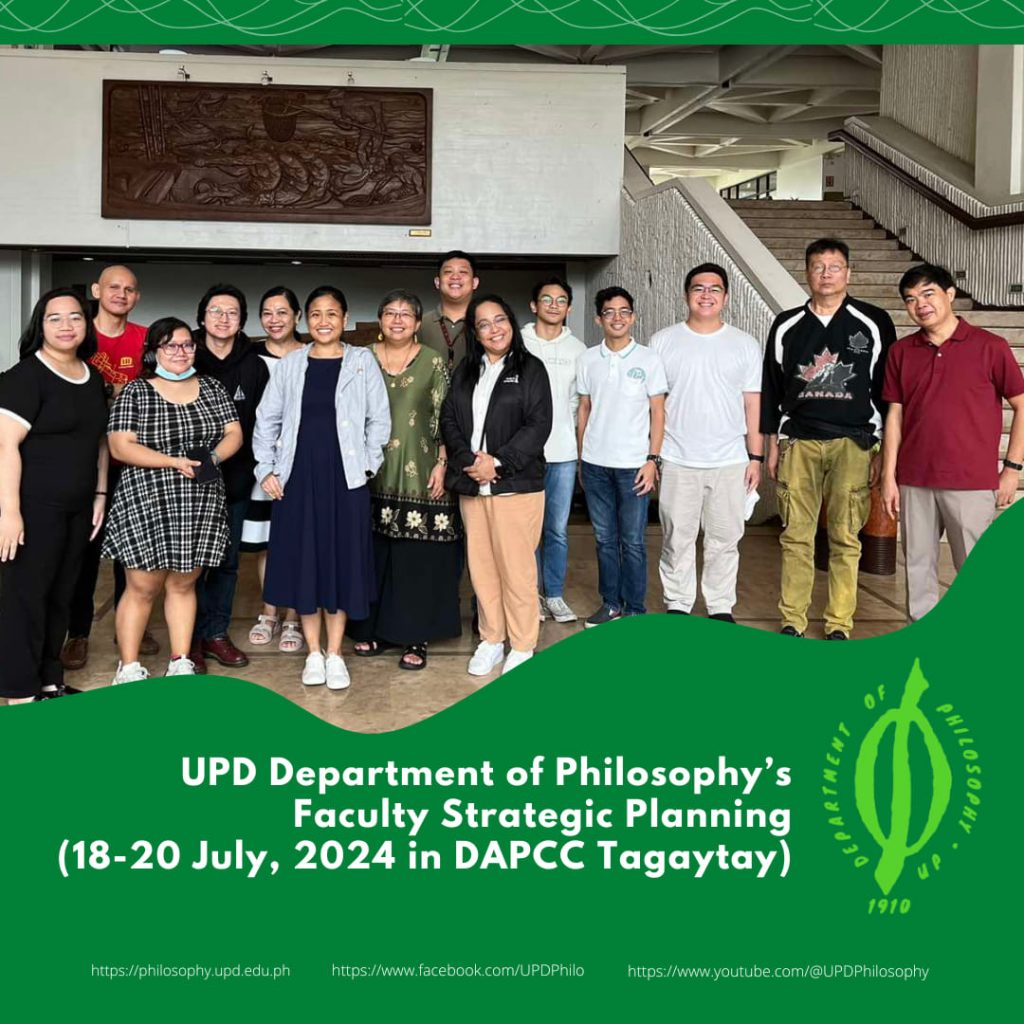
UPD Department of Philosophy’s Faculty Strategic Planning on 18-20 July, 2024 in DAPCC Tagaytay
#UPDPhilosophy💚📚



Remembering a mentor, a friend, and a colleague: Prof. Leonardo De Castro, PhD. (1952-2024)
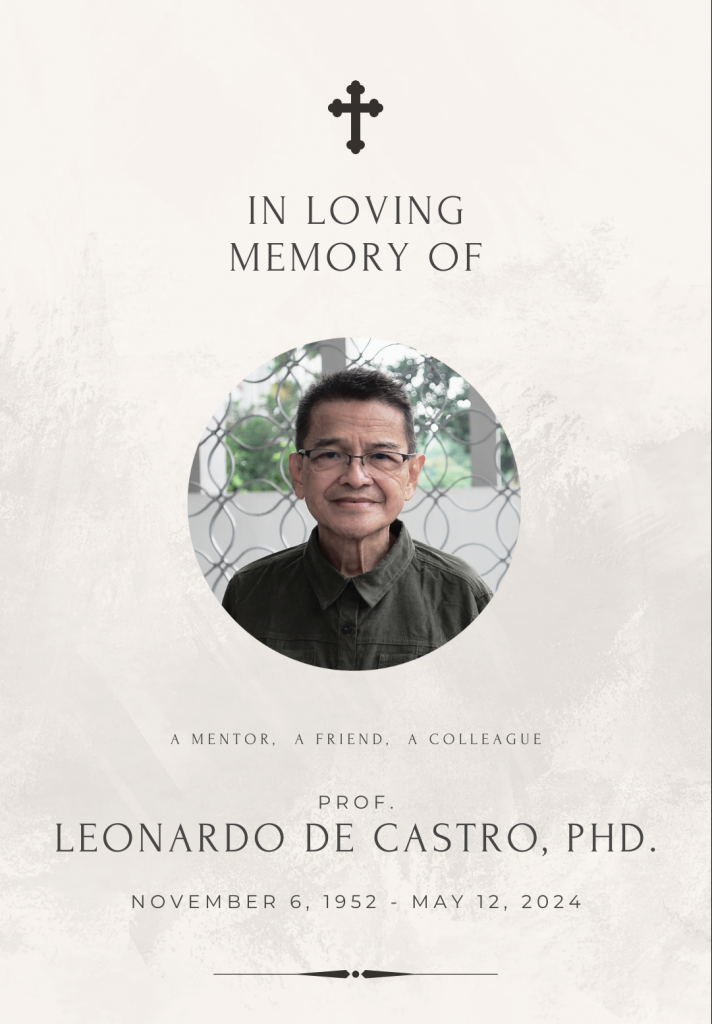
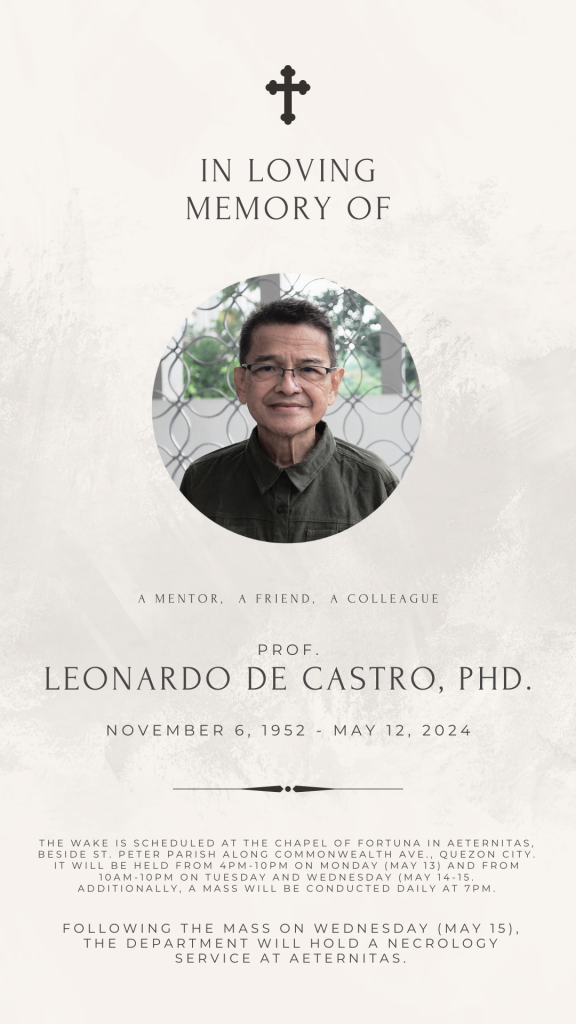
“Philosophies of Appropriated Religions: Perspectives from Southeast Asia” Book Launch @ DLSU, 8 May 2024


UPD-Cambridge Philosophy Lecture Series – Day 2
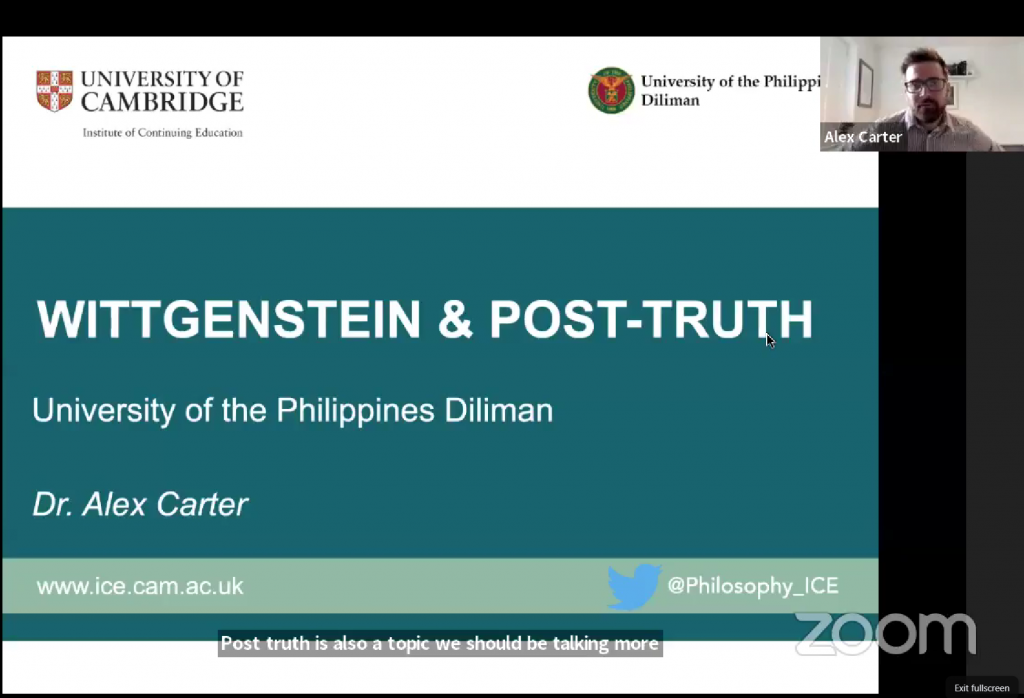
Prof. Alex David Carter, PhD. on “Wittgenstein and Post-Truth”
Day 2 of the UPD-Cambridge Lecture Series
April 9, 2024 (4PM-6PM) – online via ZOOM and Facebook livestream
Abstract:
In this talk, Alex Carter, Ph.D. introduces a Wittgensteinian Analysis of Post-Truth: as a Cynical Appeal to Non-Rationality. Starting with a rejection of the claim that Post-Truth is “mere lying”, Alex consideres Harry Frankfurt’s (1984) prescient discussion of “bullshit”. Alex goes on to consider a potential defense of Post-Truth practices in Wittgenstein’s claim that “explanations come to an end somewhere”. However, Alex concludes that Wittgenstein’s account of non-rationality does not permit explanations being brought to an end anywhere.
Watch the livestream replay here: https://www.facebook.com/UPDPhilo/videos/726787209347902
#UPDPhilo
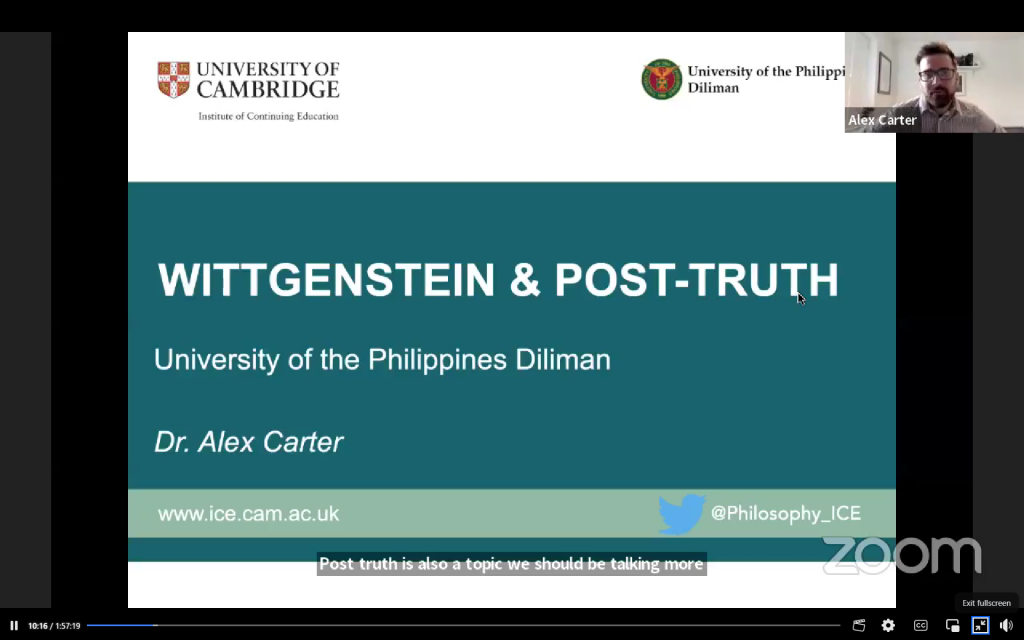
UPD-Cambridge Philosophy Lecture Series – Day 1
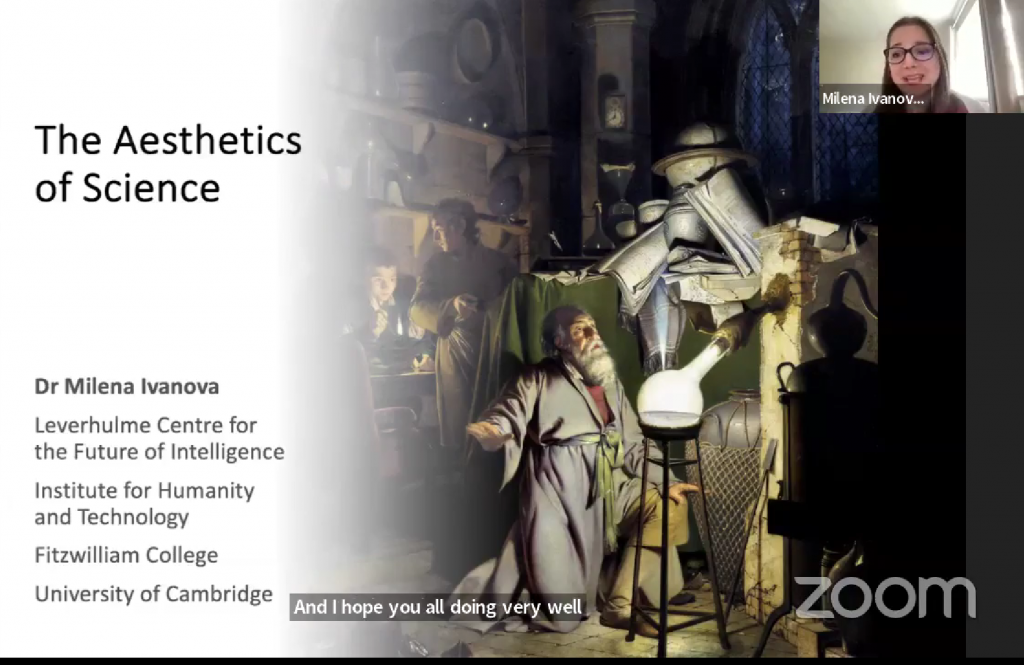
Prof. Milena Ivanova, PhD. on “The Aesthetics of Science”
Day 1 of the UPD-Cambridge Lecture Series
April 8, 2024 (4PM-6PM) – online via ZOOM and Facebook livestream
Abstract:
Many aspects of Science are considered beautiful: theories, models, experiments, images, explanations. But what is the role and function of beauty in Science and how does it affect scientific pursuits? In this talk, Milena Ivanova, Ph.D. discusses the diverse roles of aesthetic values in scientific practice by appealing to historical case studies as well as qualitative data collected from interviews with contemporary scientists and shows why Beauty matters on the daily lives of scientists.
Watch the livestream replay here: https://www.facebook.com/UPDPhilo/videos/393792716851071
#UPDPhilo
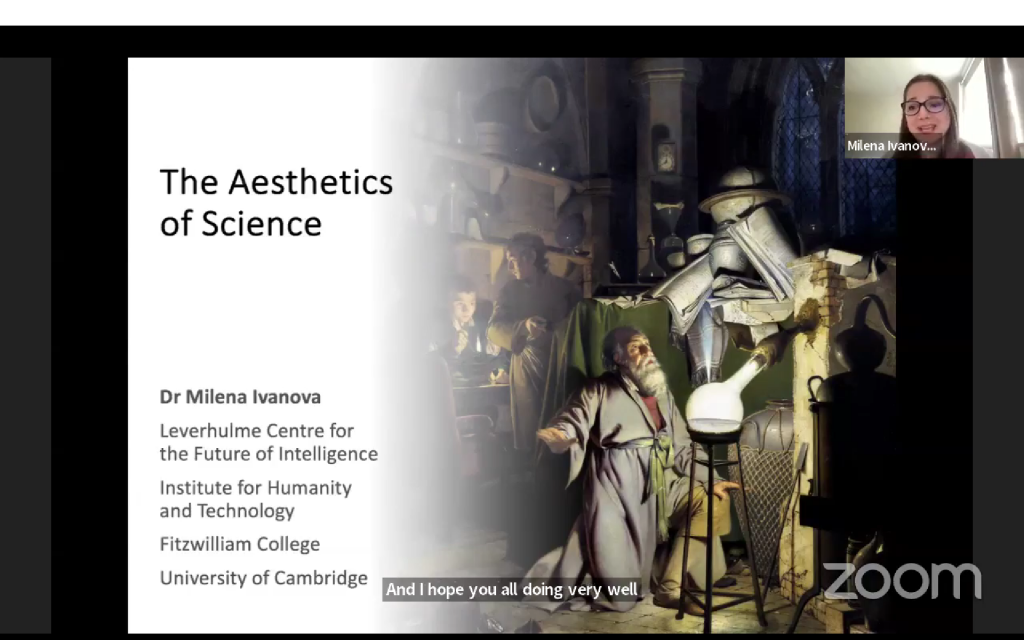
Department of Philosophy Regular Faculty Meeting


ASEAN University Network – Quality Assessment External Assessment Workshop
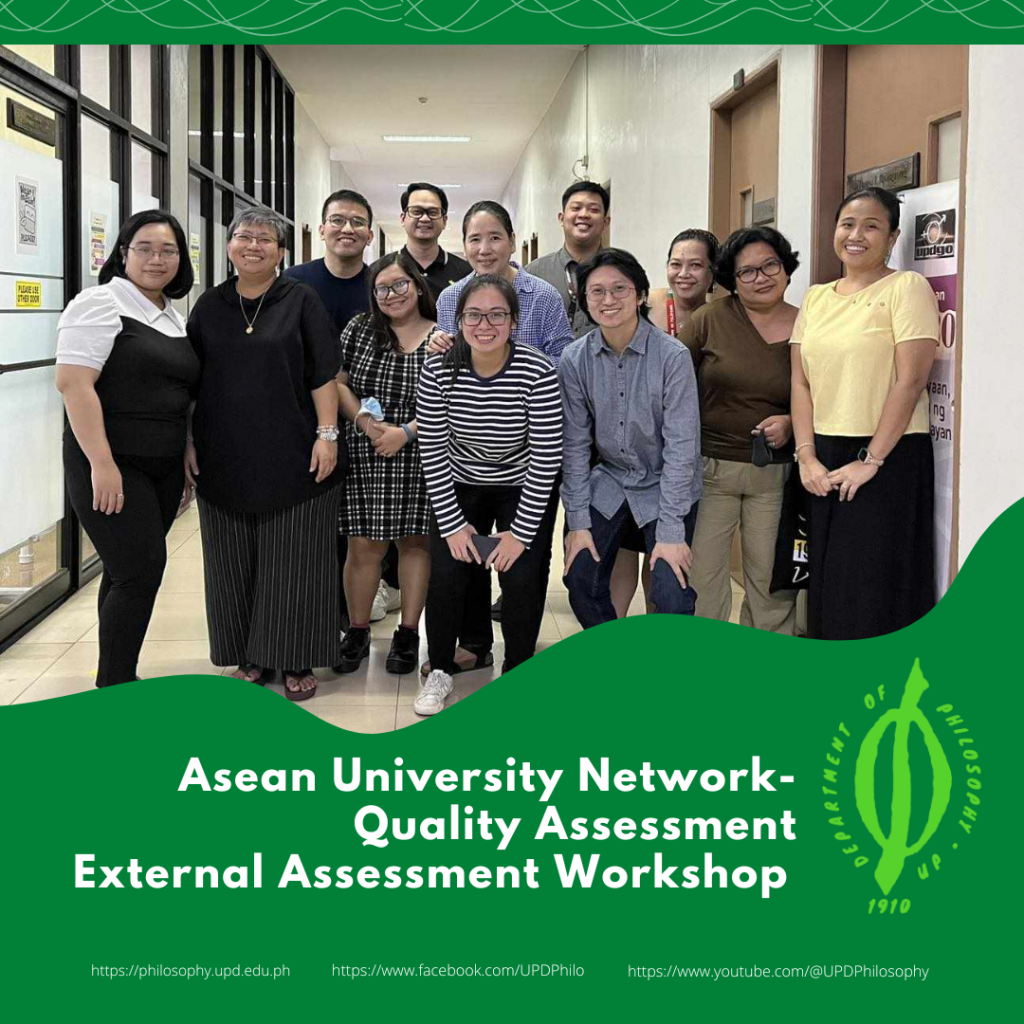
The UP Department of Philosophy held an AUN-QA Workshop last 02 February 2024.
The Department aims to undergo external assessment based on the ASEAN University Network – Quality Assessment (AUN-QA) standards by 2025 or 2026. The workshop is devoted to discussing the evidence and programs that need to be prepared in light of the following eight criteria:
1. Expected Learning Outcomes
2. Program Structure and Content
3. Teaching and Learning Approach
4. Student Assessment
5. Academic Staff
6. Student Support Services
7. Facilities and Infrastructure
8. Output and Outcomes
#UPDPhilosophy

Faculty attendees were grouped into three: Student Group discussing AUN-QA criteria 4 and 6; Faculty Group discussing criteria 1, 2, and 3; and Staff and Facilities Group discussing criteria 5, 7, and 8.
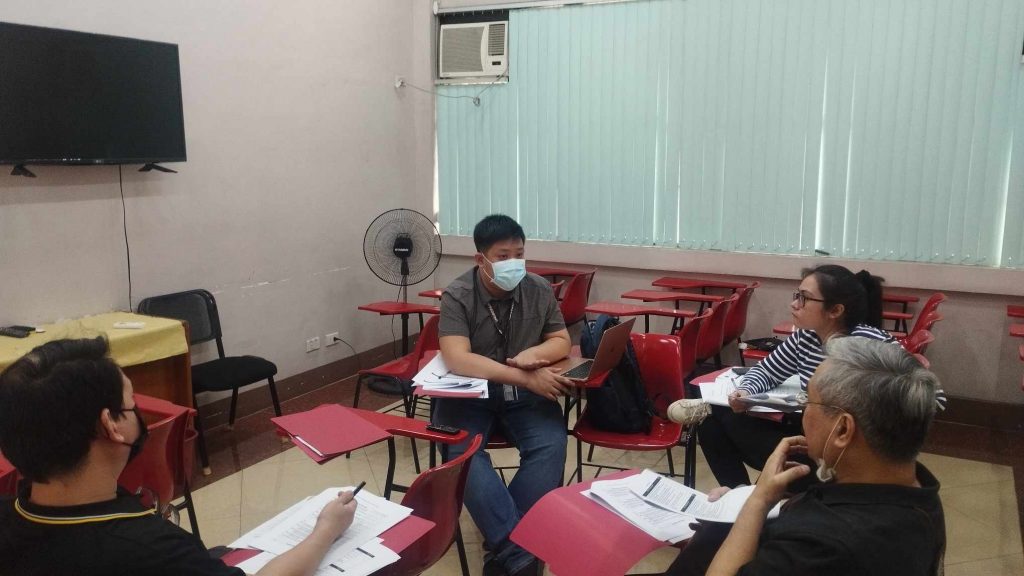
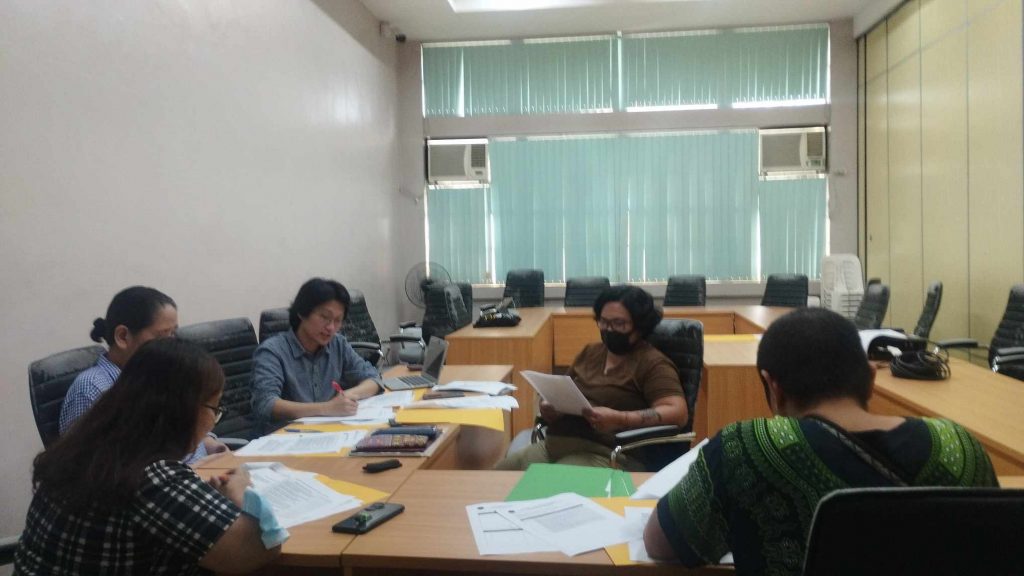
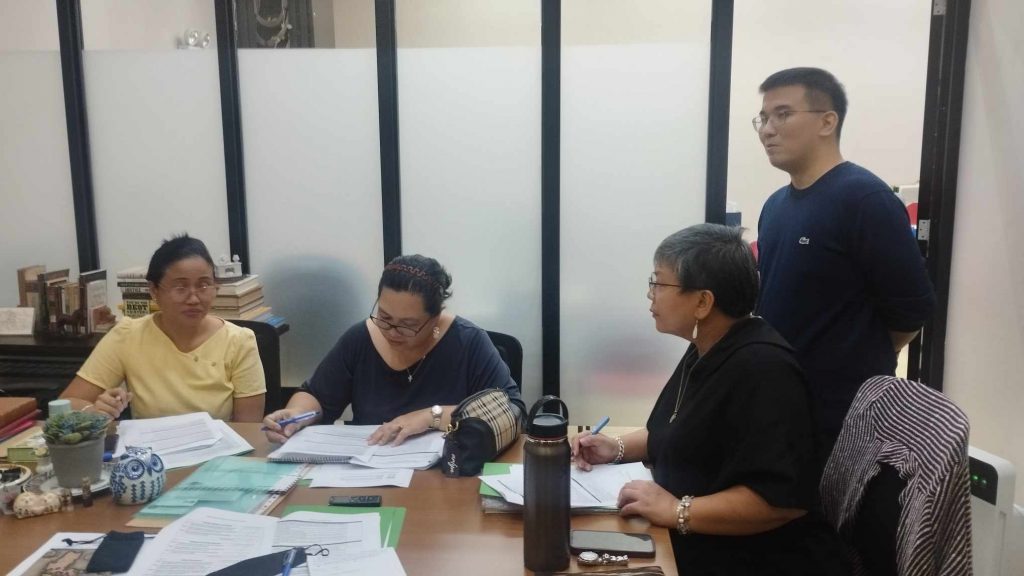
DISSERTATION: DEFENDED! The UP Department of Philosophy proudly congratulates Asst. Prof. Gerald Franco, PhD
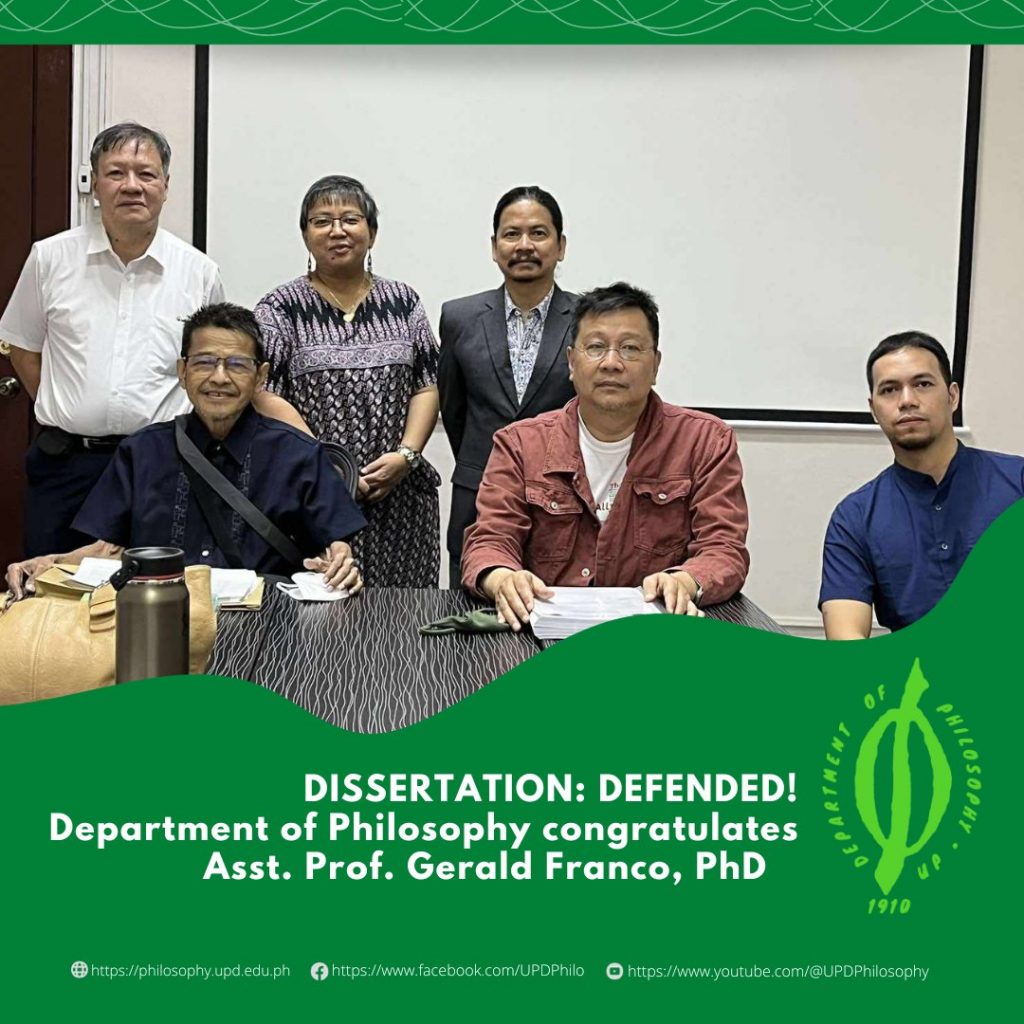
𝗗𝗜𝗦𝗦𝗘𝗥𝗧𝗔𝗧𝗜𝗢𝗡: 𝗗𝗘𝗙𝗘𝗡𝗗𝗘𝗗! The UP Department of Philosophy proudly congratulates its very own Asst. Prof. Gerald Franco, PhD for successfully defending his PhD dissertation titled “𝗢𝗻 𝘁𝗵𝗲 𝗦𝗲𝗺𝗮𝗻𝘁𝗶𝗰 𝗖𝗼𝗻𝘁𝗲𝗻𝘁 𝗼𝗳 𝗣𝗿𝗼𝗽𝗲𝗿 𝗡𝗮𝗺𝗲𝘀.”
The oral defense was held on 8 January, 2024 in the Graduate Student Reading Room (Palma Hall 121).
In photo (clockwise from left to right): Assoc. Prof. Ciriaco Sayson Jr, PhD.; Prof. Ma. Liza Ruth Ocampo, PhD.; Asst. Prof. Gerald Franco, PhD.; Assoc. Prof. Aldrin Lee, PhD.; Prof. Earl Stanley Fronda, PhD.; and Prof. Leonardo De Castro, PhD.

